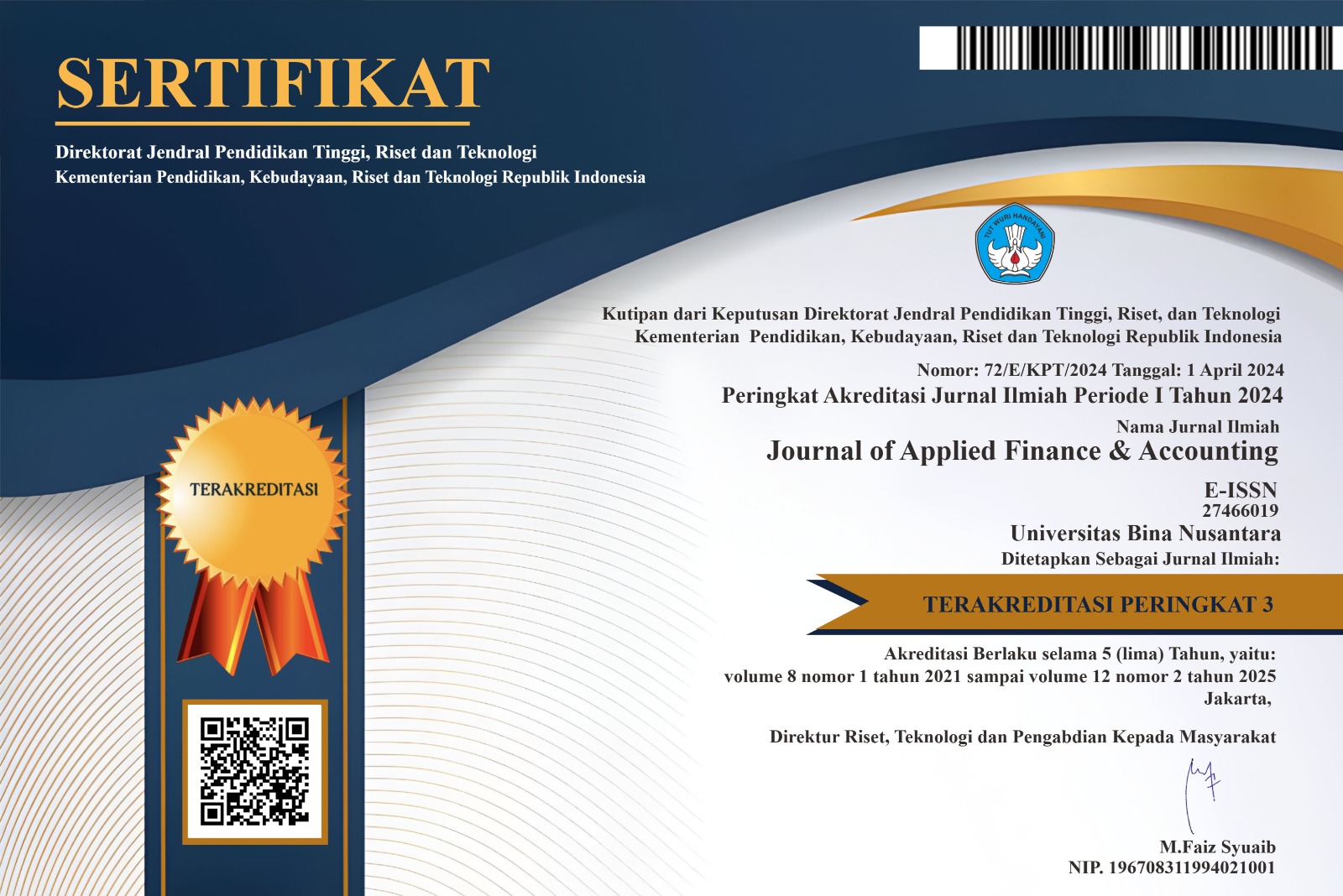FOUNDING FAMILY OWNERSHIP AND FIRM PERFORMANCE: EMPIRICAL EVIDENCE FROM CONSUMER GOODS INDUSTRY IN INDONESIA
DOI:
https://doi.org/10.21512/jafa.v4i2.284Keywords:
ownership structure, family firms, firm performance, Indonesia.Abstract
This research investigates the significant influence of family ownership on firm performance in order to provide information to decision makers and other interested parties. The analysis includes comparisons between family and non-family firm performance in Indonesia. The samples are taken from 31 consumer goods companies, listed on the Indonesian Stock Exchange, ranging from 2005 to 2009. The results show that non-family firms perform better than family firms and no significant influence between family ownership and firms’ profitability. On the other hand, family ownership has negative contribution to firm market valuation. The study suggests that family firms have lower financial performance than that of non-family.  Family members within the top position have major control rights and contribute a negative influence to firm performance. The evidence raises concerns about possible profit manipulation and weak governance law in Indonesia, and as a result there is an expropriation of wealth to the majority and family related shareholders.
Downloads
Published
Issue
Section
License
Authors who publish with this journal agree to the following terms:
Authors retain copyright and grant the journal right of first publication with the work simultaneously licensed under a Creative Commons Attribution License that allows others to share the work with an acknowledgement of the work's authorship and initial publication in this journal.
Authors are able to enter into separate, additional contractual arrangements for the non-exclusive distribution of the journal's published version of the work (e.g., post it to an institutional repository or publish it in a book), with an acknowledgement of its initial publication in this journal.
Authors are permitted and encouraged to post their work online (e.g., in institutional repositories or on their website) prior to and during the submission process, as it can lead to productive exchanges, as well as earlier and greater citation of published work (See The Effect of Open Access).




